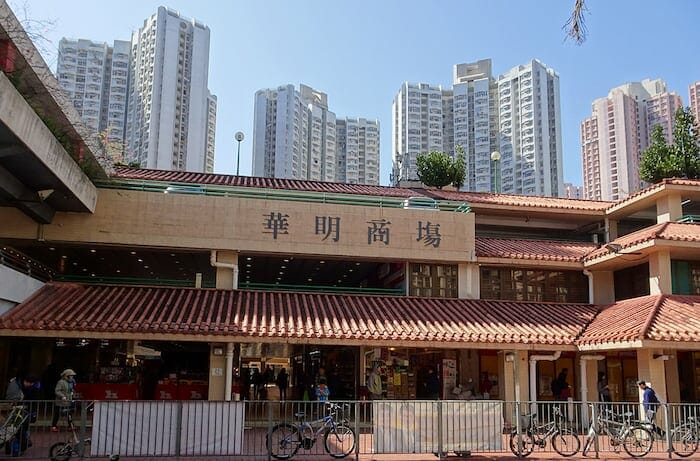
A Gaw Capital fund acquired the Wah Ming Shopping Centre from Link REIT in March
Community malls lead the way in Mingtiandi’s roundup of Asia real estate headlines today with the news that a Hong Kong-based private equity firm has indicated that unrest in the Asian financial hub has hurt businesses in its portfolio of community malls.
In other news around the region, a co-working giant is said to be reviewing 100 leases as it battles to stem losses, while a city in Jiangsu province finds out that reversing property sales controls is not a good idea. Plus, there’s more WeWork news, and one property agency says Hong Kong home prices could drop 20 percent in 2020.
Gaw Says $4.5B HK Community Retail Portfolio Suffers From Protests
Hong Kong private equity fund Gaw Capital Partners, which owns and operates 29 shopping centres and car parks in the city, said that the ongoing protests have hurt its tenants and renovation efforts.
Gary Wong Chi-him, public affairs and marketing director at Gaw Capital, said that businesses at its malls have been hit since the start of the third quarter and “we will consider what discounts can be offered, [although] there is no one-off plan”. Read more>>
ARA H-Trust Secures $75m in Loans to Fund US Marriott Hotels Purchase
ARA US Hospitality Trust (ARA H-Trust) has taken out $75 million in unsecured loans to partially finance its $84.5 million acquisition of three Marriott-branded hotels in the US.
The facilities comprise a US$66 million term loan and a US$9 million revolving credit facility, ARA H-Trust said in a regulatory filing on Friday, without disclosing the identities of the lenders. Read more>>
WeWork Reviews 100 Leases Globally
WeWork is reviewing about 100 leases around the globe and could pull out of some of them as it works to stem its losses, the company confirmed.
The embattled co-working start-up could unravel leases it signed on up to 100 buildings, which comprises ten percent to 15 percent of its global office leases. It’s unclear how many offices the company will ultimately exit based on the review. Read more>>
Hong Kong Luxury Home Prices Expected to Fall Up to 20% Next Year
Luxury property prices in Hong Kong will decline by up to 20 per cent next year after falling 4.7 per cent in this year, as Beijing continues to maintain capital controls and China’s economy feels the impact from the US-China trade war, according to international property consultancy JLL.
“The economic slowdown in mainland China and Hong Kong will dampen housing demand, particularly in the luxury residential market that relies on demand from China,” said Joseph Tsang, chairman of JLL in Hong Kong. Read more>>
Home Rents Set to Slide Further in HK
Rents for residential property in Hong Kong will continue to decline over the next few months as a weakening economy raises concerns over employment, market observers said.
The average rent fell 1.6 per cent last month from a year earlier to HK$36 ($4.6) per square foot – the lowest since May, according to data from Centaline Property Agency on Wednesday. Read more>>
Godrej Properties Adds 4 New Projects to Mumbai, Bangalore Pipeline
Realty firm Godrej Properties on Thursday said it has added four new projects in Mumbai Metropolitan Region (MMR) and Bangalore comprising 12.7 million square feet of developable area.
The company, a real estate arm of business conglomerate Godrej group, said it has added three new projects at Navi Mumbai, Ambernath, and Thane in MMR and one new project in northern Bangalore. Read more>>
Chinese City Reverses Decision to End Curb on Property Sales after Just 1 Day
A city in China’s Jiangsu province abruptly reversed a decision to lift a restriction on property sales, the state-run Securities Times reported on Wednesday.
Zhangjiagang, a small city of over 1 million people near Shanghai, on Tuesday removed a restriction imposed more than two years ago that banned home buyers from reselling their properties within two years of their purchase, according to local media reports. Read more>>
Beijing Has Built Thousands of Cheap Apartments No One Wants
When Beijing introduced price caps for almost two-thirds of apartments in late 2016 as part of a programme to provide homes for millions of middle-class citizens to buy, an array of cheap condominiums began springing up on the city’s outskirts. Three years on, the cramped, poor-quality units that are far from anywhere lie mostly empty.
It’s an awkward reality confronting authorities in the nation’s sprawling capital, which introduced the stringent housing curbs to quash prices that had shot up almost 30 per cent in the 12 months through September 2016. Read more>>
Tune in again tomorrow for more news, and be sure to follow @Mingtiandi on Twitter, or bookmark Mingtiandi’s LinkedIn page for headlines as they happen.
Leave a Reply